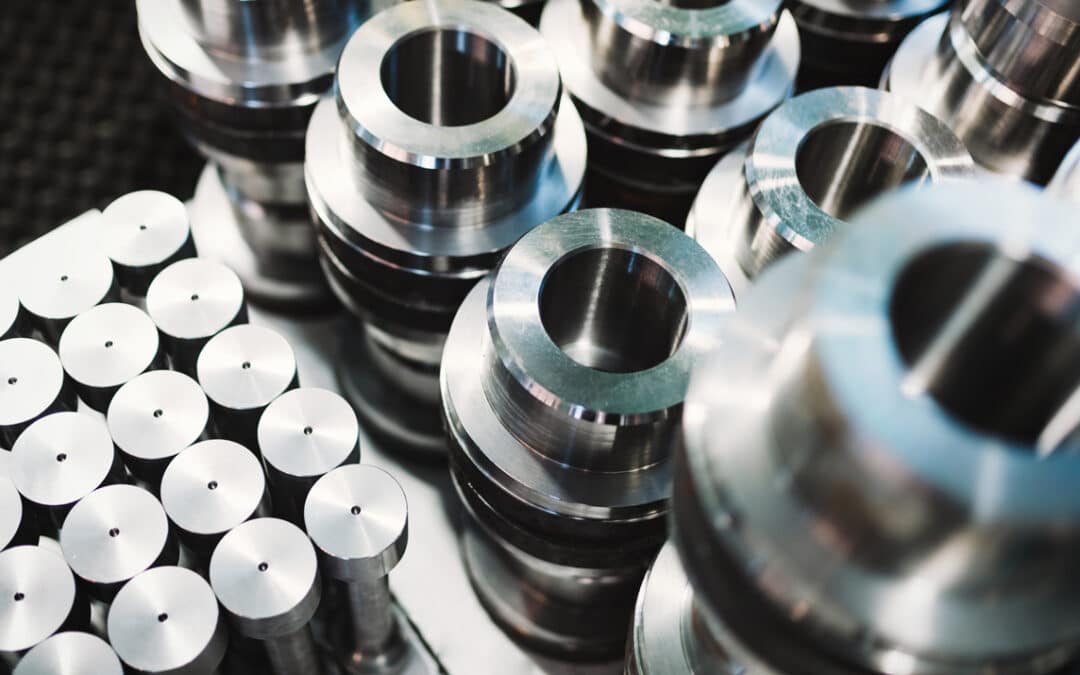In high-stakes industries like aerospace, defense, and medical manufacturing, CNC surface finish service isn’t an afterthought, it’s a precision-critical, spec-driven necessity.
Poor-quality finishing can result in part corrosion, dimensional drift, and premature failure, all of which jeopardize performance and inflate costs through rework and scrap. When you’re dealing with tight timelines, strict compliance requirements, and complex assemblies, finishing becomes a critical quality checkpoint—not just a cosmetic step.
In this article by MME, you’ll learn the key factors that define quality CNC surface finishing, how it impacts dimensional stability, long-term part performance, and quality compliance, and what to look for in a finishing provider.
The Risks of Inadequate CNC Surface Finishing
Dimensional Instability
Subpar CNC surface finish methods can introduce unintended dimensional changes, jeopardizing the tight tolerances required in complex assemblies. These distortions may not be evident during machining but can manifest during use, especially under thermal or mechanical stress.
Corrosion and Environmental Degradation
Without a certified surface finish provider that offers treatments like chemfilm for aluminum or passivation of stainless steel, components are more susceptible to corrosion, especially in harsh or regulated environments. Galvanic reactions and oxidation can compromise both aesthetic and functional integrity.
Increased NCRs and Rework
A part can meet machining specs but still fail functional or cosmetic inspection due to surface inconsistencies. This drives up non-conformance reports (NCRs), increases the cost of corrective actions, and delays final delivery.
What High-Quality Surface Finish Services Look Like
Tight Tolerance Preservation
The right CNC surface finish process should complement precision machining, not compromise it. Certified finishing methods maintain dimensional accuracy while enhancing durability and part longevity. When properly integrated, finishing adds functional value, such as corrosion resistance or improved wear properties, without altering critical tolerances or part performance.
In-House Capabilities Matter
The mark of a quality CNC finishing partner is robust in-house capabilities that ensure control over every step of the process. Services like Nadcap-certified chemfilm and passivation deliver consistent, repeatable, and fully traceable results across production runs.
Outsourcing Philosophy
Outsourcing is often used strategically for highly specialized processes that are not practical to maintain in-house, allowing the partner to offer a wider range of certified services without compromising quality. A quality CNC finishing partner manages their outsourced capabilities with the same rigor as in-house processes, ensuring they meet strict quality and certification standards. They maintain full oversight, clear documentation, and traceability to guarantee consistent, reliable results across every part.
Compliance and Certification as Indicators of Quality
Industry certifications such as AS9100, ISO 9001, and Nadcap demonstrate that a finishing partner’s processes are documented, repeatable, and compliant with industry best practices. These frameworks reduce defects, streamline audits, and provide assurance for high-stakes applications.
Discover Quality CNC Surface Finish Capabilities With MME
High-quality CNC surface finish services are a strategic safeguard against part failure, cost overruns, and compliance risks. For engineers and procurement professionals sourcing precision components, evaluating a supplier’s finishing capabilities is critical to long-term project success. MME offers certified, in-house CNC surface finishing services, including chemfilm, passivation, and precision painting, that ensure compliance, enhance durability, and meet the rigorous standards of aerospace, defense, and medical applications. Learn more about our CNC surface finish capabilities today!

